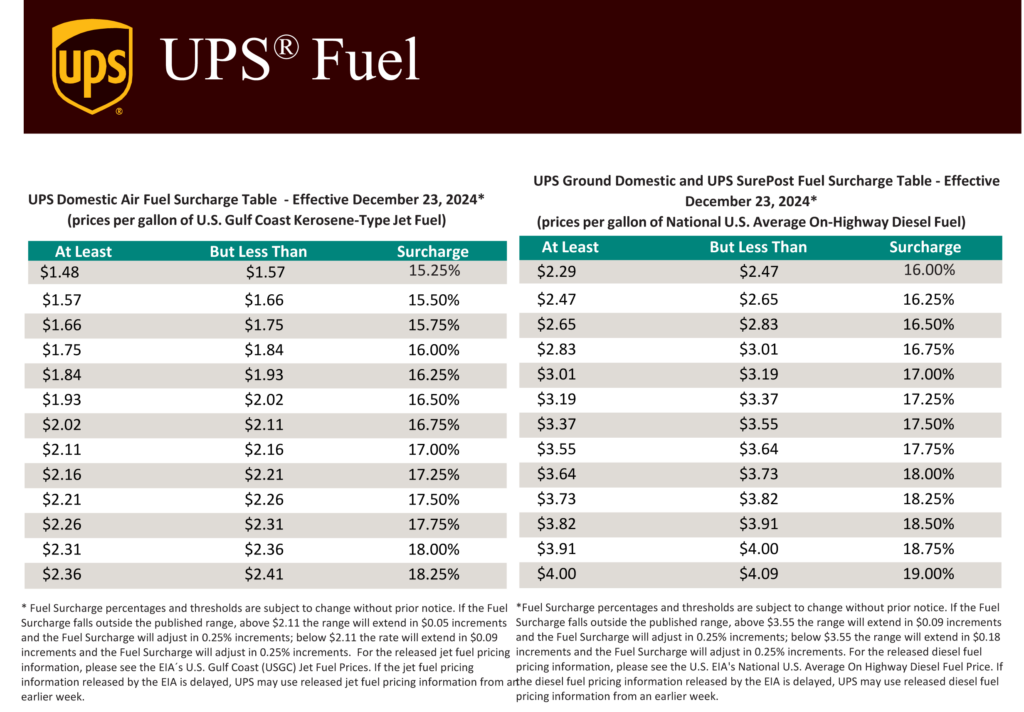If your company ships UPS, you understand the effect UPS fuel surcharge has on shipping costs. The calculation is a percentage of the base rate and adds to the expense of each package. As a result, it
What is the UPS Fuel Surcharge?
The UPS Fuel Surcharge is a fee that United Parcel Service (UPS) applies to shipments, in addition to standard shipping charges, to adjust for changes in fuel prices. This surcharge helps UPS offset the costs associated with the changing fuel prices, whether for air or ground transportation.
The actual percentage of the fuel surcharge can vary depending on several factors:
- Type of Shipment: Ground and air shipments may have different surcharge rates.
- Fuel Prices: The surcharge typically fluctuates monthly based on the average fuel price. UPS uses indices like the U.S. Gulf Coast (USGC) price for kerosene-type jet fuel or the U.S. On-Highway Diesel Fuel price to determine the surcharge rate for a given period.
- Geographical Region: The surcharge can vary depending on where the package is shipped to or from. International shipments, for example, might have other rates than domestic ones.
It’s also worth noting that other shipping companies, like FedEx, have similar fuel surcharges.
Estimated reading time: 5 minutes
UPS Fuel Surcharge Calculations 2025
Ground and UPS Surepost: UPS uses an index-based surcharge that adjusts every Monday. The basis for the fee is the National U.S. Average On-Highway Diesel Fuel Price. This applies for the week that is two weeks before the adjustment. UPS will update the tables if the fuel surcharge falls outside the published ranges. For instance, the surcharge for the week of August 26, 2024, is based on the diesel fuel price for the week of August 12.
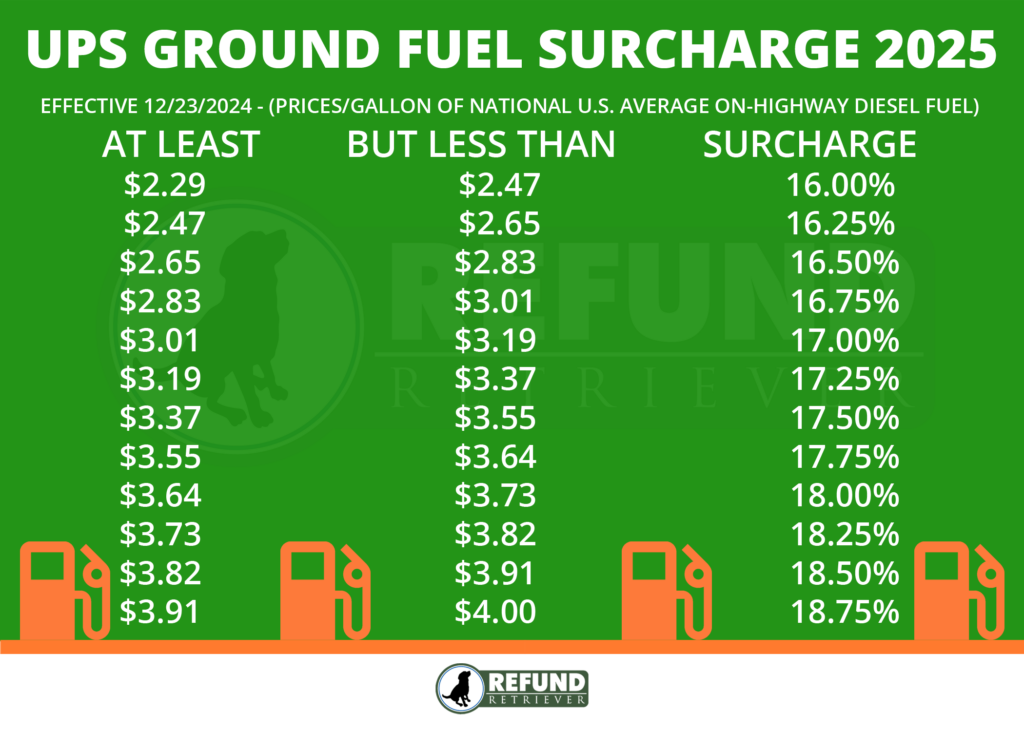
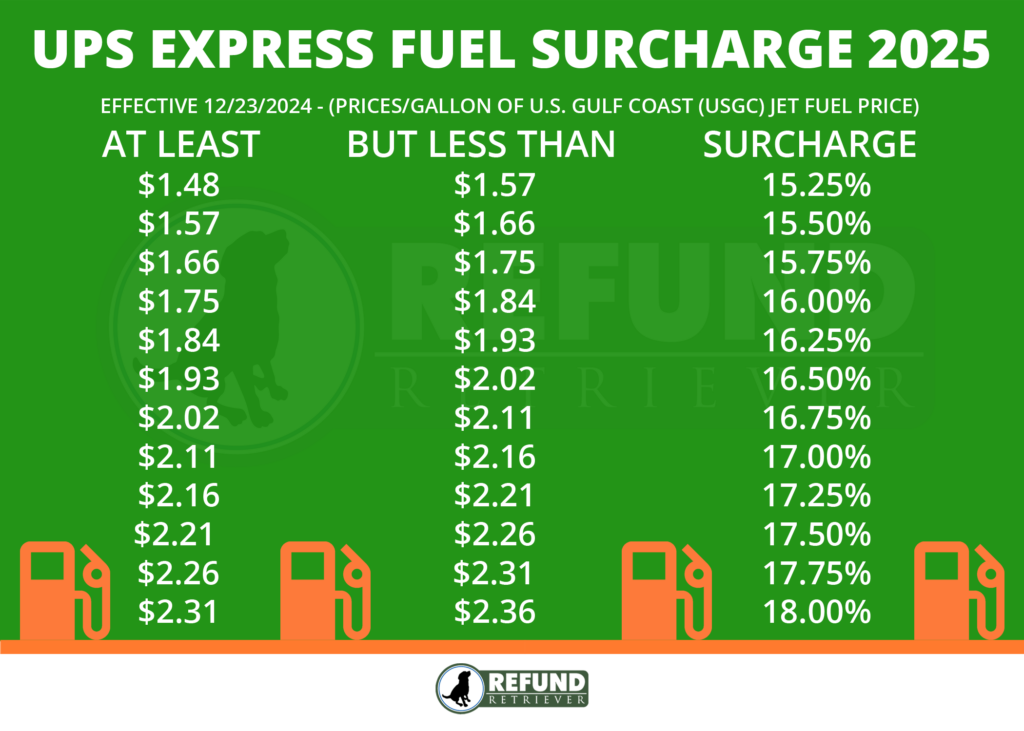
Domestic Air fuel surcharge: UPS uses an index-based surcharge that adjusts each week on Monday. The basis for the fuel surcharge is the U.S. Gulf Coast price for kerosene-type jet fuel. Accordingly, this applies for the week two weeks before the adjustment. These charts are taken from UPS.com.
Acessorial Fees that have a fuel surcharge added.
The following value-added services and other charges listed below will have fuel surcharge application effective October 21, 2024.
| Additional Handling | Address Correction | Chargeback Fee | Collect on Delivery (C.O.D.) |
| Dangerous Goods (Hazardous Materials) | Declared Value for Carriage | Delivery Area Surcharge | Delivery Area Surcharge CWT |
| Delivery Confirmation | Demand Surcharge | Direct Delivery Only | Large Package Surcharge |
| Over Maximum Limits | Remote Area Surcharge | Remote Area Surcharge CWT | Residential Surcharge |
| Residential Surcharge – Hundredweight | Saturday Air Processing Fee | Saturday Delivery | Saturday Pickup Service |
| UPS On-Call Pickup | UPS On-Call Pickup Area Surcharge | UPS Returns: 1 UPS Pickup Attempt | UPS Returns: 3 UPS Pickup Attempts |
| Weekend Residential Delivery |
How do I lower fuel costs?
Every package is subject to a fuel surcharge, and a fuel surcharge impacts all shippers. As a result, the fuel surcharge is the most common surcharge for Refund Retriever clients. In short, here are a few recommendations to lower UPS fuel surcharges:
- Negotiate better service agreement terms on discounts and surcharges.
- Negotiate incentives on the agreement. (10 – 50% discount on fuel surcharge)
- Reduce the frequency of surcharges on which fuel surcharge applies
Refund Retriever will help reduce your transportation charges with UPS and FedEx. Our reports and analytics identify the total amount spent on fuel surcharges each year. Our free contract analysis will also start carrier agreement negotiations with the best information. In summary, UPS can decrease or even eliminate this charge.
Historical Surcharge Rates
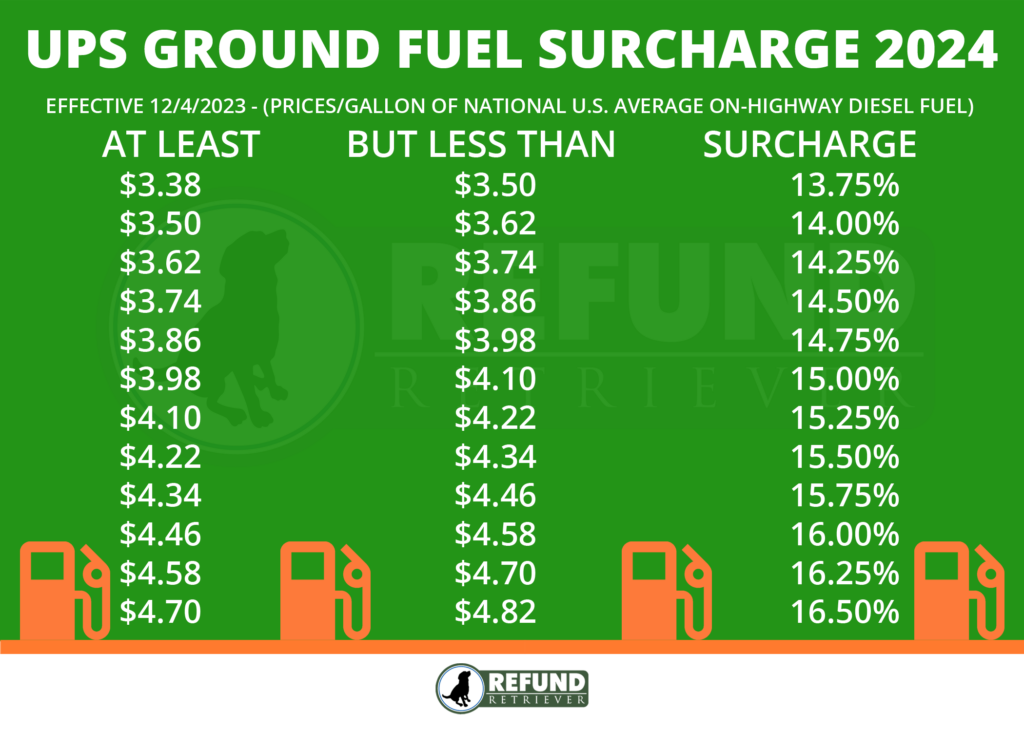
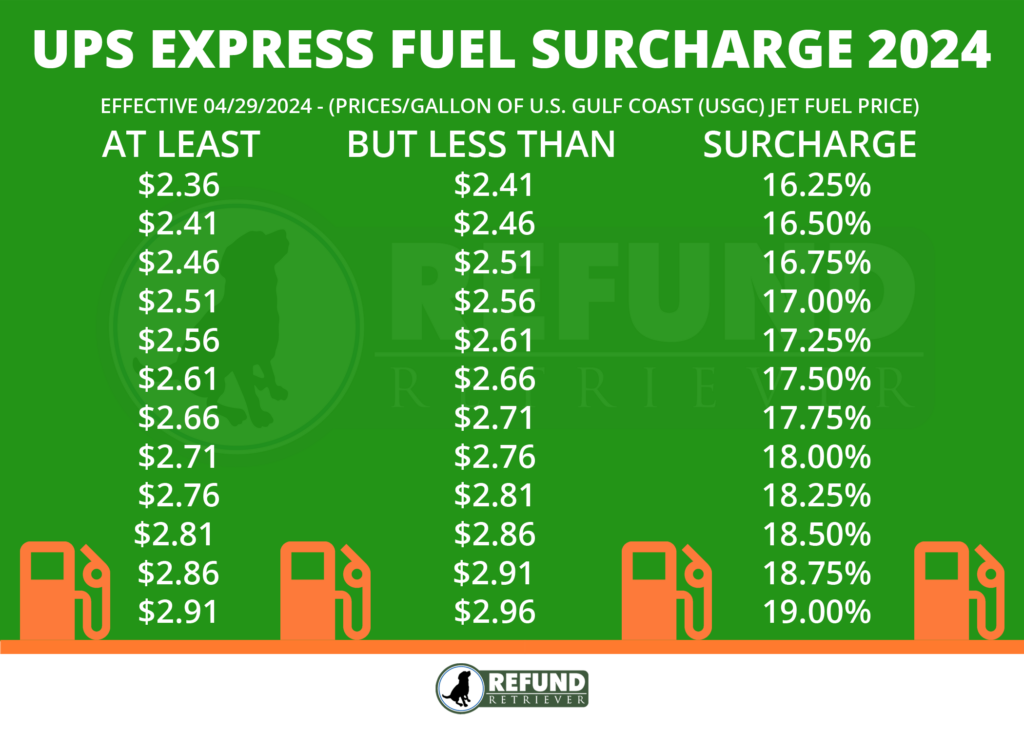
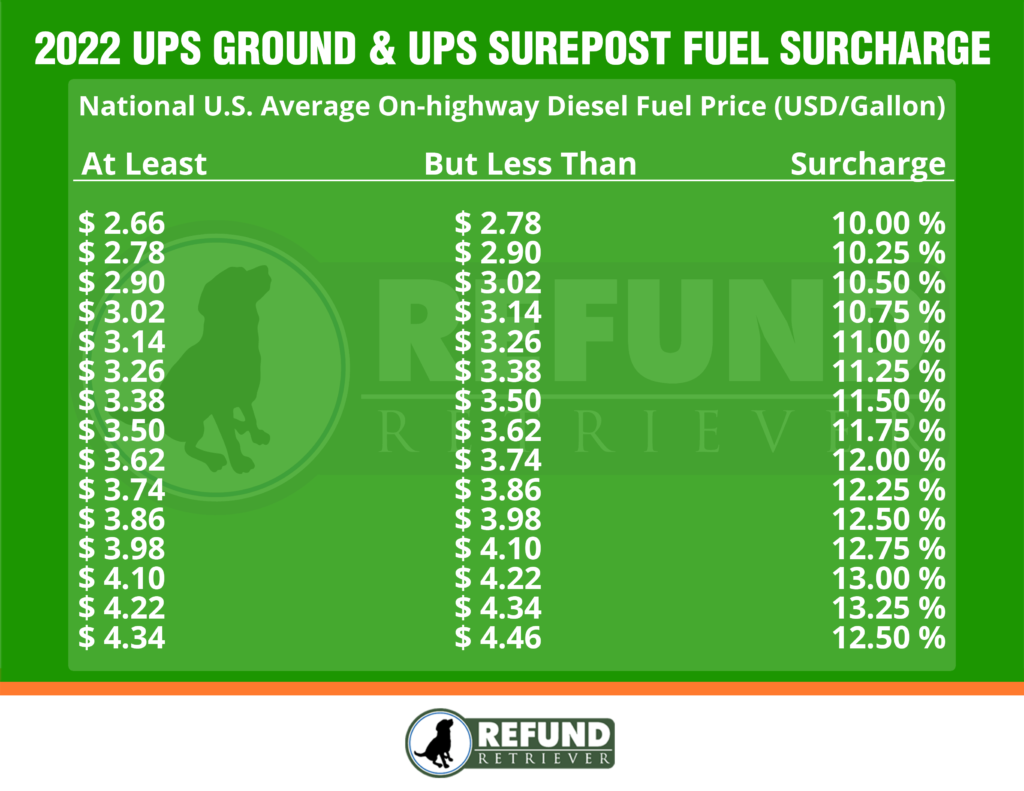
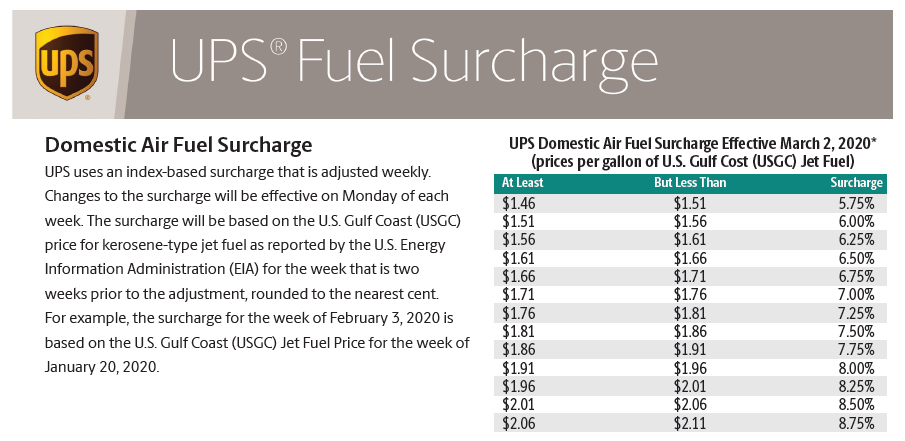
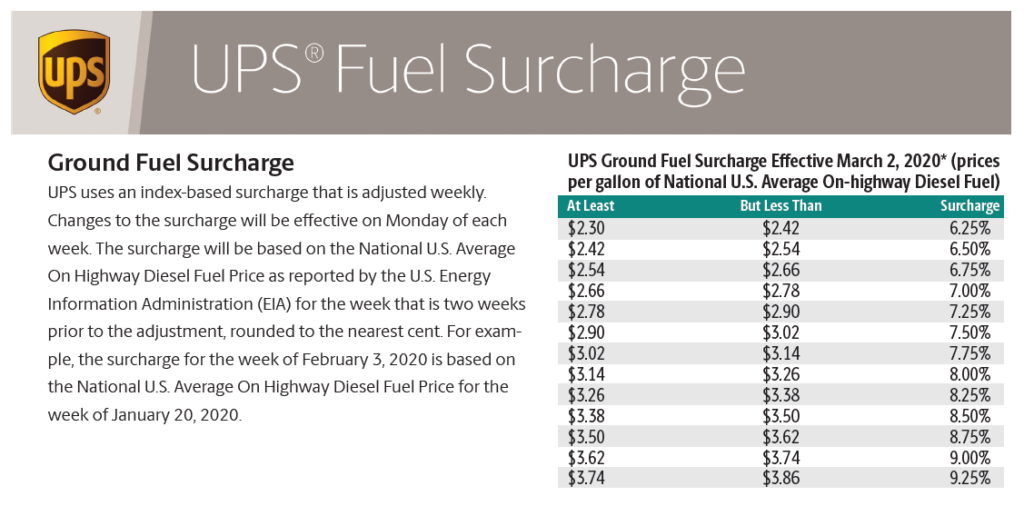
Consequently, UPS’s daily rates differ from UPS’s retail rates. This charge will not apply to UPS Ground packages when subject to UPS retail rates. In conclusion, contact Refund Retriever today when your company wants to reduce the impact of the UPS fuel surcharge.

